November 8, 2018 •
Utah Special Session to Address Medical Marijuana
This week, Utah voters passed Proposition 2 legalizing medical marijuana. The highly controversial ballot initiative caused Gov. Gary Herbert to announce his intention to call a special session on medical marijuana regardless of the outcome of this week. The proposition […]
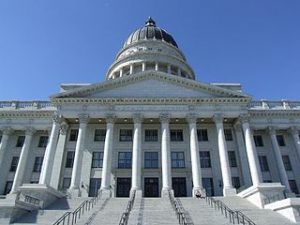
This week, Utah voters passed Proposition 2 legalizing medical marijuana.
The highly controversial ballot initiative caused Gov. Gary Herbert to announce his intention to call a special session on medical marijuana regardless of the outcome of this week.
The proposition will go into effect on December 1, 2018, and Gov. Herbert’s office announced its intent this week to convene a special session shortly thereafter.
Under state law, an initiative passed by statewide vote can be amended by the legislature after it becomes law.
Gov. Herbert has already discussed changes and compromises with lawmakers and proponents of Proposition 2. This will be the state’s third special session this year.
November 7, 2018 •
Utah Voters Approve Amendment C
Utah voters passed Amendment C allowing the Legislature to call itself into a special session. This came after Gov. Gary Herbert refused to call lawmakers to set a special election to fill the vacancy created by the departure of U.S. […]
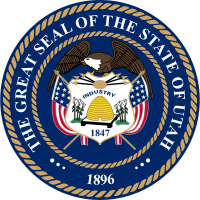 Utah voters passed Amendment C allowing the Legislature to call itself into a special session.
Utah voters passed Amendment C allowing the Legislature to call itself into a special session.
This came after Gov. Gary Herbert refused to call lawmakers to set a special election to fill the vacancy created by the departure of U.S. Representative Jason Chaffetz.
Amendment C will allow legislators to convene if two-thirds of the House and Senate agree it is necessary because of a fiscal crisis, war, natural disaster or emergency.
The amendment also allows the Legislature to hold a special session outside the Capitol if the building isn’t available.
Voters appear headed to approve Amendment C as unofficial vote totals show it winning 63.2 percent to 36.8 percent.
November 7, 2018 •
Florida Passes Amendment to Move Legislative Session to January
Voters passed Amendment 10 proposing four changes to state and local government structure and operation. The first proposal changes the regular sessions for the Legislature from March to January on even-numbered years. The measure also created the Office of Domestic […]
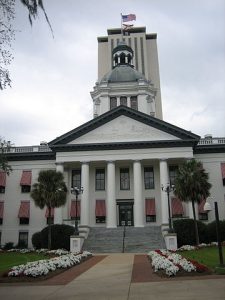 Voters passed Amendment 10 proposing four changes to state and local government structure and operation.
Voters passed Amendment 10 proposing four changes to state and local government structure and operation.
The first proposal changes the regular sessions for the Legislature from March to January on even-numbered years.
The measure also created the Office of Domestic Security and Counter-Terrorism within the Department of Law Enforcement and requires the Legislature to provide for a Department of Veterans Affairs within the executive branch.
The last proposal passed by the measure ensures elections for the county offices of sheriff, tax collector, property appraiser, supervisor of elections, and clerk of the circuit court.
The changes relating to the election of county officers will take effect January 5, 2021, except for Miami-Dade and Broward Counties which will take in January 7, 2025.
November 2, 2018 •
U.S. Virgin Islands Announces Special Election
Lawmakers convened and adjourned two special sessions regarding a proposal for tuition-free college education and to vote on a reapportionment initiative. The Legislature approved Bill 32-0329 to schedule a special election for March 30, 2019. The election will allow voters […]
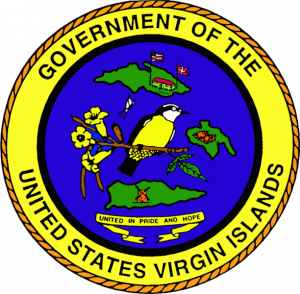 Lawmakers convened and adjourned two special sessions regarding a proposal for tuition-free college education and to vote on a reapportionment initiative.
Lawmakers convened and adjourned two special sessions regarding a proposal for tuition-free college education and to vote on a reapportionment initiative.
The Legislature approved Bill 32-0329 to schedule a special election for March 30, 2019.
The election will allow voters to decide whether to restructure the Legislature to create smaller district senators and increase the number of at-large senators.
October 26, 2018 •
News You Can Use Digest – October 26, 2018
National: How a Billionaire from Another State Could Influence Your Elections Center for Public Integrity – Liz Essley Whyte | Published: 10/18/2018 Twenty-five American billionaires have invested more than $70.7 million for initiative campaigns this year in 19 states where […]

National:
How a Billionaire from Another State Could Influence Your Elections
Center for Public Integrity – Liz Essley Whyte | Published: 10/18/2018
Twenty-five American billionaires have invested more than $70.7 million for initiative campaigns this year in 19 states where they do not reside. Meanwhile, as little as $7.2 million has gone from their wallets and those of other billionaires to campaigns in their home states. In total, the $78 million tally from all 34 billionaires may be pocket change to them, but it is more than 10 percent of the $648 million disclosed so far this year for statewide ballot measure campaigns. The contributions from the wealthy to campaigns across state lines rankle some local opponents, even though no one questions their legality. Just who should decide issues in their states, they ask – the people who live there or some rich folks from out-of-state?
Three Secretaries of State Are Refereeing the Election While Running in the Field
McClatchy DC – Tim Johnson | Published: 10/18/2018
In three states, the referee for the midterm elections is also on the field as a player. Elected secretaries of state in Georgia and Kansas, who in their official capacities oversee the elections in their states, are running for governor. Ohio’s secretary of state is running for lieutenant governor. They have faced scattered calls to resign but have refused to do so. Election reformers say the situation underscores the conflict-of-interest when an official has responsibilities for an election while also running as a candidate. While the three secretaries of state are Republican, concerns about inappropriate actions by partisans who hold the office transcend parties.
Federal:
Inside the Saudis’ Washington Influence Machine: How the kingdom gained power through fierce lobbying and charm offensives
MSN – Tom Hamburger, Justin Reinhard, and Justin Moyer (Washington Post) | Published: 10/21/2018
A sophisticated influence machine has shaped policy and perceptions of Saudi Arabia in Washington, D.C. for decades, batting back critiques of the kingdom by doling out millions of dollars to lobbyists, law firms, prominent think tanks, and large defense contractors. In 2017, Saudi payments to lobbyists and consultants in Washington more than tripled over the previous year. Beyond their spending, the Saudis have enjoyed a priceless advantage: a warm relationship with President Trump, who has done business its wealthy citizens, and his son-in-law, Jared Kushner, who developed a close bond with the crown prince as he crafted the administration’s Middle East policy.
U.S. Begins First Cyberoperation Against Russia Aimed at Protecting Elections
MSN – Julian Barnes (New York Times) | Published: 10/23/2018
The United States Cyber Command is targeting individual Russian operatives to try to deter them from spreading disinformation to interfere in elections, telling them that American operatives have identified them and are tracking their work. The campaign, which includes missions undertaken in recent days, is the first known overseas cyberoperation to protect U.S. elections, including the November midterms. The operations come as the Justice Department recently outlined a campaign of “information warfare” by Russians aimed at influencing the midterm elections, highlighting the broad threat the American government sees from Moscow’s influence campaign.
From the States and Municipalities:
Alaska: State Regulators to Alaska Lobbyist: Stop helping candidates raise money
Alaska Public Media – Nathaniel Hertz | Published: 10/18/2018
Alaska lobbyists have been breaking an anti-corruption law by promoting fundraising events on behalf of candidates, according to a preliminary opinion from the state’s campaign finance watchdog. Lobbyist Ashley Reed asked for the formal opinion from the Alaska Public Offices Commission. He wanted to know whether state law allows for lobbyists to email copies of invitations to fundraisers for political candidates. The Legislature banned lobbyists from engaging in fundraising activity more than two decades ago. But despite the ban, Reed and lobbyist Jerry Mackie have been sending copies of fundraiser invitations to their clients and friends.
Florida: Text Messages Raise New Questions Over Andrew Gillum’s Lobbyist Connections
WRAL – Patricia Mazzei (New York Times) | Published: 10/23/2018
Undercover FBI agents paid for Tallahassee Mayor Andrew Gillum’s hotel room and his ticket to the Broadway musical “Hamilton” during a 2016 trip to New York City, according to newly released documents that raise questions just before Florida’s gubernatorial election, in which Gillum is locked in a close race with former U.S. Rep. Ron DeSantis. Text messages between Gillum and former lobbyist Adam Corey, who set up meetings with the agents, show Gillum knew the tickets came from men he believed to be businesspeople looking to develop property in Tallahassee, but were undercover FBI agents investigating public corruption in the city. The records contradicted Gillum’s past statements on the state ethics probe.
Indiana: No Charges Against Hill, But Investigation Reveals Searing New Details
Indianapolis Star – Tony Cook, Ryan Martin, and Kaitlin Lange | Published: 10/23/2018
Indiana Attorney General Curtis Hill will not be charged over allegations he groped a state lawmaker and several staffers at a party celebrating the end of the legislative session. He also was cleared of any ethical breaches by the inspector general’s office. Special Prosecutor Daniel Sigler, who said he believed the women’s stories to be “true and credible,” announced that bringing charges would be difficult due to the time that elapsed between the alleged incident in March and the filing of the claims against Hill. But the fallout from Hill’s alleged behavior that night is likely to continue as his accusers prepare a civil lawsuit and Republican leaders continue to call for his resignation.
Kentucky: Kentucky AG Defends Campaign Finance Reform in Sixth Circuit
Courthouse News Service – Kevin Koeninger | Published: 10/18/2018
The constitutionality of several Kentucky ethics laws was debated before a panel of the U.S. Court of Appeals for the Sixth Circuit, with the state’s attorney general arguing they are necessary to maintain citizens’ confidence in the government. Plaintiffs alleged numerous restrictions on campaign financing and lobbying were unconstitutional, including contribution limits and a prohibition on gifts to legislators and their spouses. Kentucky made sweeping changes to its campaign finance laws in 2017, which mooted several of the plaintiffs’ claims. But U.S. District Court Judge William Bertelsman sided with the plaintiffs on several issues last year. Bertelsman struck down the law that prevents legislators and their spouses from receiving “anything of value,” ruling the statute was unconstitutionally vague and overbroad.
Maine: Crowdfunding of Collins Opponent in 2020 Likely Faces Legal Challenge
Lewiston Sun Journal – Kevin Collins (Portland Press Herald) | Published: 10/22/2018
In an effort to pressure U.S. Sen. Susan Collins on the confirmation of Brett Kavanaugh to the Supreme Court, organizers pledged to collect contributions nationwide and give them to a hypothetical Democratic challenger in 2020 if Collins voted to confirm the nominee. If she opposed Kavanaugh, whose nomination nearly collapsed amid allegations of sexual misconduct, no money would be collected. The unprecedented campaign, which Collins has labeled a bribe, is a testament to the power of small-dollar “crowdfunding” at a time when corporations, interest groups, and wealthy donors can dump unlimited money into elections. Yet the tactics used by the three organizations behind the campaign to pressure Collins are raising sticky legal questions that could end up in court, with national implications.
Missouri: Clean Missouri Proposition Puts Redistricting Front and Center, Limits Lobbyist Influence
St. Louis Public Radio – Jason Rosenbaum | Published: 10/23/2018
Amendment 1 on the November ballot in Missouri would limit the meals, entertainment, and travel a lobbyist can give a lawmaker, and place a two-year waiting period on lawmakers and their staff to become lobbyists. It would also lower contributions limits for state House and Senate candidates, as well as alter how state legislative districts are drawn. Supporters believe the measure will make lawmakers more responsive to people instead of special interest groups or lobbyists. Detractors believe the initiative is not about improving ethics, and instead is about giving Democrats a leg up on the state legislative redistricting process.
New Hampshire: N.H. Legislators Look to Lobbyists for Reliable Source of Re-Election Cash
New Hampshire Public Radio – Casey McDermott | Published: 10/19/2018
A review of fundraising reports in New Hampshire over the most recent legislative session shows donations from lobbying interests with a direct stake in the decisions made by state senators accounted for roughly half of all the money raised by those same senators’ re-election campaigns. The rate of reliance on lobbying money varied from as little as 16 percent to 75 percent or more. In many cases, senators’ fundraising reports reflected the intersection of money and influence inherent to statehouse lobbying. Candidates can, and often do, accept separate contributions from lobbying firms, the lobbyists they employ, and the clients they represent, magnifying their impact in legislative races.
New York: Dean Skelos, Ex-New York Senate Leader, Gets 4 Years and 3 Months in Prison
WRAL – Benjamin Weiser and Vivian Wang (New York Times) | Published: 10/24/2018
Former New York Senate Majority Leader Dean Skelos was sentenced to four years and three months in prison on federal corruption charges, including soliciting bribes and defrauding the public. The sentence was lighter than the five years that the same judge imposed in 2016 when he was convicted on the same charges. That conviction was overturned. Skelos’ son, Adam, who was convicted along with his father, was sentenced to four years in prison. Prosecutors accused Dean Skelos of using his position to pressure three companies to provide his son with consulting work, a “no-show” job, and a $20,000 payment.
North Dakota: All of the Above? The Ancient Voting Method One City Might Adopt
Governing – Alan Greenblatt | Published: 10/19/2018
In November, voters in Fargo, North Dakota, will decide whether to adopt a ballot measure that would create a system known as “approval voting” for local elections. Under the system, everybody can vote for as many candidates as they would like. If there are four candidates for the city commission, for example, you could choose to vote for one of them, or for two, or for the whole lot. Unlike the other multiple-choice method known as ranked-choice voting, which is gaining favor in some places, each vote would count the same. The person with the highest total would win. Supporters say voters would not have to worry about wasting votes on spoilers with little chance of winning since they can also select candidates expected to be more popular. In theory, however, candidates with extreme viewpoints would have a harder time since the winner would have to be broadly acceptable to most voters.
Pennsylvania: Ex-Allentown Mayor Gets 15 Years in Prison on Corruption Charges
Philadelphia Inquirer – Associated Press | Published: 10/23/2018
Former Allentown Mayor Ed Pawlowski was sentenced to 15 years in prison on corruption charges. He was convicted of trading city contracts for campaign donations to fund his bids for mayor, governor, and U.S. Senate. Jurors found him guilty on 47 counts in connection to eight schemes, including those involving contracts for a city pool, tax collection service, cybersecurity, and streetlight installation. Pawlowski must also pay more than $93,000 in restitution in restitution to the city and to vendors that prosecutors say were cheated out of a fair and open bidding process.
South Carolina: Should SC Roads Be Named After Lawmakers Who Have Pleaded Guilty to Corruption?
The State – Avery Wilks | Published: 10/22/2018
A few days after he resigned from the South Carolina Senate and pleaded guilty to misconduct in office, John Courson asked the Department of Transportation to remove the signs bearing his name from a state road. But another former state senator, Robert Ford, who pleaded guilty to corruption in 2015, says he earned the right to have a Charleston road named after him and would not give up the honor. Unseemly exits from the South Carolina General Assembly can create a host of awkward circumstances. Among them: what to do with the state roads or buildings named after politicians who have admitted to corruption?
October 25, 2018 •
Georgia Governor Announces Special Session
Gov. Nathan Deal announced a special session for November 13 regarding the costs associated with Hurricane Michael. The hurricane lead to deaths and destruction of property in southwest Georgia last month. The governor’s office expects the recovery costs to be […]
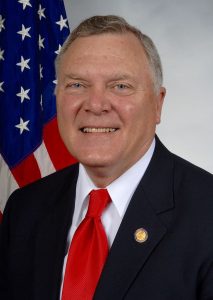 Gov. Nathan Deal announced a special session for November 13 regarding the costs associated with Hurricane Michael.
Gov. Nathan Deal announced a special session for November 13 regarding the costs associated with Hurricane Michael.
The hurricane lead to deaths and destruction of property in southwest Georgia last month.
The governor’s office expects the recovery costs to be more than $100 million.
The legislature will also vote on an executive order passed by Gov. Deal last July suspending the collection of sales tax on jet fuel.
October 22, 2018 •
North Carolina Special Session Adjourns
On October 15, the North Carolina General Assembly adjourned a special session after passing the Hurricane Florence Emergency Response Act to establish a fund to provide relief and assistance from the effects of Hurricane Florence. The Act also granted funds […]
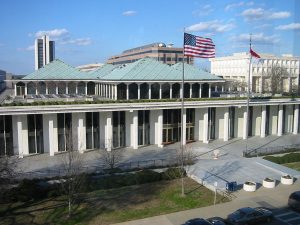 On October 15, the North Carolina General Assembly adjourned a special session after passing the Hurricane Florence Emergency Response Act to establish a fund to provide relief and assistance from the effects of Hurricane Florence.
On October 15, the North Carolina General Assembly adjourned a special session after passing the Hurricane Florence Emergency Response Act to establish a fund to provide relief and assistance from the effects of Hurricane Florence.
The Act also granted funds to the Bipartisan State Board of Elections and Ethics Enforcement to educate the public about voting in the November 2018 election, specifically in counties designated under the disaster declaration by the president.
An October 16 ruling by the Wake County Superior Court found the legislative provisions creating the Bipartisan Board unconstitutional. The court, however, stayed the injunction concerning the activity of the Bipartisan Board until after the November election.
October 22, 2018 •
Special Sessions Scheduled for U.S. Virgin Islands
Lawmakers scheduled a special session for Wednesday, October 24. The special session is regarding an initiative seeking to split the territory into five districts on the November ballot. The Legislature must either accept, reject, or propose an alternative by October […]
 Lawmakers scheduled a special session for Wednesday, October 24. The special session is regarding an initiative seeking to split the territory into five districts on the November ballot.
Lawmakers scheduled a special session for Wednesday, October 24. The special session is regarding an initiative seeking to split the territory into five districts on the November ballot.
The Legislature must either accept, reject, or propose an alternative by October 31 for the measure to be included in the general election or a special election must be held within 90 days.
Gov. Kenneth Mapp also called a special session for Friday, October 26 to consider a proposal for free college tuition.
The proposal would provide $3 million from the Internal Revenue Matching Fund and pay tuition for students at the University of the Virgin Islands starting the fall of 2019.
October 12, 2018 •
News You Can Use – October 12, 2018
National: Out-of-State Donors Pour Cash into Democrats’ State Races Center for Public Integrity – Rui Kaneya and Joe Yerardi | Published: 10/10/2018 Nationwide, many Democrats running for state-level offices from governor to state representative are also collecting a significant amount […]

National:
Out-of-State Donors Pour Cash into Democrats’ State Races
Center for Public Integrity – Rui Kaneya and Joe Yerardi | Published: 10/10/2018
Nationwide, many Democrats running for state-level offices from governor to state representative are also collecting a significant amount of money from across state lines. Though Democrats still trail Republicans in the overall fundraising tally, they have so far raised at least $101 million from out of state, about $29 million more than their GOP counterparts have taken in. The influx of out-of-state contributions comes from a mix of companies with local interests, networks of contacts scattered across the country, and newly emboldened national groups that are mobilizing to influence state-level elections, mindful that the outcomes will have an impact on politics at the state and national levels lasting well into the next decade.
Federal:
FEC Guidance to Limit Impact of Dark Money Court Ruling
Associated Press – Brian Slodysko | Published: 10/5/2018
The FEC issued new guidance in response to a U.S. District Court ruling that found the agency improperly allowed “social welfare” nonprofits to skirt disclosure requirements for some donors. While the guidance answers some questions, it raises others. “A lot of people were very excited when [the case] first came out, but when you get into the weeds, one has to acknowledge that the opinion is not as broad some people had hoped,” said FEC Commissioner Ellen Weintraub.
Saluting the Trump Administration, Not So Nicely
Politico – Ben Schreckinger | Published: 10/9/2018
At the White House, the nearby Trump International Hotel, and wherever the presidential motorcade goes, Washingtonians are greeting Donald Trump’s presidency with an extended middle finger. As episodes like the separation of migrant families and the confirmation of Brett Kavanaugh to the Supreme Court continue to inflame passions in Washington, D.C., these one-fingered salutes have become a pervasive marker of an administration under siege in its own city. Tourists posing for photographs, passengers in the cars that drive by the White House, and pedestrians caught unaware by motorcades have all made increasing use of the vulgar gesture since Trump came to town. Some do it subtly; others make a show of it.
Wall Street Is Booming Under Trump. But Many of Its Donors Are Embracing Democrats.
WRAL – Shane Goldmacher (New York Times) | Published: 10/7/2018
The stock market is booming, unemployment is hitting record lows, and Republicans pushed through $1.5 trillion in tax cuts. But despite all that, for the first time in a decade, the broader financial community is on pace to give more money to Democratic congressional candidates and incumbents than their GOP counterparts. Some of the same grassroots energy coursing through the Democratic Party, House candidates from Kentucky to Montana to New York are reporting record sums of small donations, has spilled into the corporate boardrooms of American finance, even amid increasingly hostile rhetoric from Democrats in Washington and on the campaign trail toward Wall Street.
From the States and Municipalities:
California: Are Political Swamps in California and Washington Mostly Drained? This Study Says They Are.
Sacramento Bee – Andrew Sheeler | Published: 10/9/2018
California ranks second in the nation for anti-corruption laws, according to a new report from the Coalition for Integrity. California share second-place Rhode Island; both states fell behind Washington state, which claimed the best score in the 2018 States With Anti-Corruption Measures for Public Officials (S.W.A.M.P.) Index. The index looks at eight metrics when assigning a score to a state, including whether there is an ethics agency with subpoena and sanction power, and whether elected and appointed executive branch officials are prohibited from accepting expensive gifts from lobbyists. At the other end of the spectrum, the S.W.A.M.P. Index rated North Dakota as worst in the nation for ethics and transparency laws.
Colorado: Wall Street Pumping Cash Through Loophole in Anti-Corruption Rule
Capital & Main – David Sirota and Chase Woodruff | Published: 10/4/2018
If Wall Street executive look to land a lucrative contract to manage Colorado retirees’ pension money, a federal “pay-to-play” rule is designed to deter them from trying to use campaign donations to influence state officials who oversee those investment decisions. Despite that regulation, however, state Treasurer Walker Stapleton’s gubernatorial campaign is being boosted by a political group partially sponsored by financial firms that receive investments from the pension fund Stapleton helps run. If Stapleton is elected governor, he will leave the pension fund’s board but will appoint three members of the board, potentially giving him even more influence over which financial firms get pension investments.
Indiana: Former Intern Says Brian Bosma Tried to Intimidate Her Over Alleged Sexual Encounter
Indianapolis Star – Tony Cook, Kaitlin Lange, and Ryan Martin | Published: 10/10/2018
Indiana House Speaker Brian Bosma investigated groping allegations against the state attorney general and is crafting a first-ever sexual harassment policy for legislators. He is also the same man who aggressively investigated the credibility of a former statehouse intern who said she had a sexual encounter with him decades ago. Family members of the woman claim Bosma’s attorney threatened to reveal the unfavorable information about her if her account became public and to expose her name even if news organizations withheld it. The former intern, Kandy Green, did not accuse Bosma of a crime. Bosma denies the encounter took place.
Kentucky: Amy McGrath Is Avoiding Attack Ads. Can a Congressional Candidate Win Without Them?
WRAL – Michael Tackett (New York Times) | Published: 10/10/2018
The race for Kentucky’s Sixth Congressional District between U.S. Rep. Andy Barr and his Democratic challenger, Amy McGrath, has featured one of the highest concentrations of political ads in the country, almost 7,000 airings, in one of the most fiercely fought races. The contest also has one of the most lopsided ratios of negative-to-positive ads, with Barr and aligned Republican groups spending overwhelmingly on spots attacking his opponent. McGrath, so far, has not run attack ads, an approach that makes this contest a laboratory to test the proposition that while voters find negative ads distasteful, candidates use them because they work.
Missouri: Missouri Lobbying Rules Fought in Federal Court
Courthouse News Service – Joe Harris | Published: 10/8/2018
The Institute for Justice filed a lawsuit claiming an executive order that bans all gifts, including written materials, to certain government officials in Missouri violates its constitutional rights. At issue is Missouri Executive Order 17-02 which prohibits “anything of value” to be given to a member of the state’s executive branch by a lobbyist. The Institute for Justice claims that by prohibiting the distribution of two of its publications, “Bottleneckers: Gaming the Government for Power and Private Profit” and “License to Work 2,” to government employees, the executive order violates its First Amendment right to free speech and Fourteenth Amendment right to petition the government for redress of grievances.
New Mexico: New Mexico Legislators Eat, Lobbyists Treat, but Public Left Guessing Who
Santa Fe New Mexican – Andrew Oxford | Published: 10/8/2018
Because of a loophole in New Mexico law, lobbyists for the most part do not have to disclose which officials they have been attempting to influence. Although the latest round of filings by lobbyists points to tens of thousands of dollars spent on entertaining policymakers, the representatives of companies and special interests remain largely free to conceal the issues they are advocating for and the policymakers they are trying to sway. The Legislature has shown little appetite for requiring more disclosure from lobbyists.
Ohio: Workers Allege Campaign Donations Were Expected, Rewarded by Summit Prosecutor Sherri Bevan Walsh
WKYC – Phil Trexler and Tom Meyer | Published: 10/10/2018
Summit County Prosecutor Sherri Bevan Walsh is accused of ignoring acts of bullying, sexual harassment, and racial discrimination in her office, while allowing political campaigning to take place by favored workers, sometimes on county time, and requiring campaign donations of her workers and denying pay hikes to those who did not. Walsh’s campaign finance reports reflect the cash flow, showing her employees contributed thousands of dollars, or about half of her entire campaign funds, in the past six filing periods. Five employees have filed complaints alleging mistreatment.
Oklahoma: Attorneys Help Bankroll Campaigns of Judges Who Hear Their Cases
Oklahoma Watch – Taylor Brown | Published: 10/8/2018
Judges in Oklahoma rarely recuse themselves voluntarily or on request because they received money from attorneys arguing before them. That is despite the fact that attorneys represent the largest number of donors to district judges’ campaigns. Court filings show many of those attorneys frequently have appeared before the candidates to whom they gave money; some donated to judges while the judge was still presiding over their case. No evidence has emerged that donations from lawyers gained them or their firms more favorable rulings or treatment from judges. But campaign finance reform advocates, along with some Oklahoma judicial candidates, say the state’s system of electing district judges poses a risk to the integrity of the system.
South Carolina: SC Attorney General Tried to Impede Statehouse Corruption Probe, Grand Jury Says
Charleston Post and Courier – Glenn Smith and Thad Moore | Published: 10/9/2018
South Carolina Attorney General Alan Wilson’s inaction impeded a probe into statehouse corruption, according to a grand jury report. Wilson’s conduct after former House Speaker Bobby Harrell pleaded guilty and named two other lawmakers cost investigators 13 months and meant the statute of limitations on potential federal crimes like money laundering ran out, the grand jurors said. The report notes Wilson’s close relationship with political consultant Richard Quinn. The corruption inquiry focused mainly on Quinn’s consulting business, his clients, and whether he acted like a lobbyist without registering. The report gives a behind the curtain look at the blurry line between political consultants, lobbyists, and powerful businesses in the state.
Tennessee: Taylor Swift’s Stunning Statement: Famously apolitical star slams Tennessee Republican, endorses Democrats
Washington Post – Emily Yahr | Published: 10/7/2018
Taylor Swift, the pop music star who has been notably apolitical in turbulent political times, endorsed two Democratic candidates running for election in Tennessee. In a post on Instagram, Swift said she planned to vote for Phil Bredesen, who is competing in a close U.S. Senate race against a Republican candidate backed by President Trump, and U.S. Rep. Jim Cooper, an incumbent who represents the Nashville area. Swift’s political views had previously been left up to interpretation, and at times her silence was viewed as support for Trump as well as the alt-right movement.
West Virginia: As 1 Supreme Court Justice Survives Impeachment in West Virginia, Others Face Trial
Governing – Phil Kabler (Charleston Gazette) | Published: 10/3/2018
One West Virginia Supreme Court justice has survived an impeachment scare. Beth Walker will remain in office after state senators rejected an impeachment article against her after a two-day trial. Senators later adopted a resolution by voice vote to issue a public reprimand of Walker. She was accused of abusing her authority. The impeachment charge stated Walker and other justices failed to control office expenses and maintain policies over matters such as working lunches and the use of state vehicles and office computers at home.
October 11, 2018 •
Utah to Hold Special Session Following November Elections
Last week, Gov. Gary Herbert promised to call a special session of the legislature to address medical marijuana after the November election. In the election, Utah will vote on Proposition 2, an initiative to allow patients with certain medical conditions […]
 Last week, Gov. Gary Herbert promised to call a special session of the legislature to address medical marijuana after the November election.
Last week, Gov. Gary Herbert promised to call a special session of the legislature to address medical marijuana after the November election.
In the election, Utah will vote on Proposition 2, an initiative to allow patients with certain medical conditions to purchase medical marijuana.
No matter what voters decide in November, Utah lawmakers have proposed and agreed on an alternate medical marijuana plan.
No date for the session has been announced.
October 8, 2018 •
VA Lawmakers Cancel Redistricting Session
Lawmakers in the Virginia House of Delegates have canceled a redistricting session scheduled for October 21. Gov. Ralph Northam has previously stated his intentions to veto the current redistricting proposal, House Bill 7003, if the bill reaches his desk. Without […]
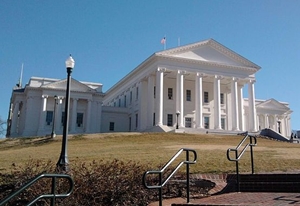 Lawmakers in the Virginia House of Delegates have canceled a redistricting session scheduled for October 21.
Lawmakers in the Virginia House of Delegates have canceled a redistricting session scheduled for October 21.
Gov. Ralph Northam has previously stated his intentions to veto the current redistricting proposal, House Bill 7003, if the bill reaches his desk.
Without a legislative solution, the redistricting of House districts will be handled by a court appointed independent party.
October 4, 2018 •
Wisconsin Legislature to Hold Extraordinary Session
The Wisconsin Legislature plans to call an extraordinary session to allow the Senate to consider a bill authorizing $100 million in tax incentives to prevent paper giant Kimberly-Clark from shutting down. If passed, Assembly Bill 963 would authorize Kimberly-Clark to […]
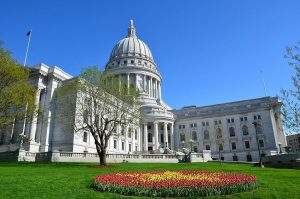 The Wisconsin Legislature plans to call an extraordinary session to allow the Senate to consider a bill authorizing $100 million in tax incentives to prevent paper giant Kimberly-Clark from shutting down.
The Wisconsin Legislature plans to call an extraordinary session to allow the Senate to consider a bill authorizing $100 million in tax incentives to prevent paper giant Kimberly-Clark from shutting down.
If passed, Assembly Bill 963 would authorize Kimberly-Clark to claim as income and franchise tax credits a percentage of the business’s eligible payroll for full-time employees.
Gov. Scott Walker said he is fighting to keep hundreds of jobs in Wisconsin. The extraordinary session will be held on Monday, November 12.
September 24, 2018 •
North Carolina to Hold Special Session for Hurricane Recovery
This week, North Carolina Gov. Roy Cooper issued a call for a special session of the state’s legislature to address damage done by Hurricane Florence. Gov. Cooper intends to call lawmakers back to work on Tuesday, October 2, 2018, to […]
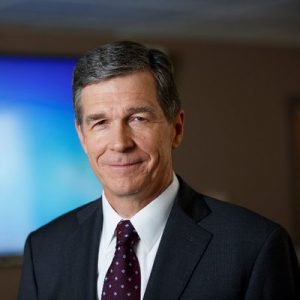 This week, North Carolina Gov. Roy Cooper issued a call for a special session of the state’s legislature to address damage done by Hurricane Florence.
This week, North Carolina Gov. Roy Cooper issued a call for a special session of the state’s legislature to address damage done by Hurricane Florence.
Gov. Cooper intends to call lawmakers back to work on Tuesday, October 2, 2018, to get state funding approved for recovery efforts.
An official proclamation for the special session has not yet been issued but it is expected in coming weeks.
This will be the third special session called to address hurricane damage in the state’s history.
September 18, 2018 •
South Dakota Holds Special Session
The South Dakota Legislature held a one-day special session on September 12 addressing online sales tax measures. The initial law to collect sales tax from online retailers was passed in 2016, but it was challenged and taken all the way […]
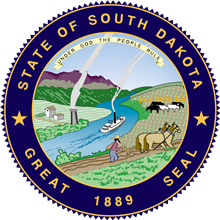 The South Dakota Legislature held a one-day special session on September 12 addressing online sales tax measures.
The South Dakota Legislature held a one-day special session on September 12 addressing online sales tax measures.
The initial law to collect sales tax from online retailers was passed in 2016, but it was challenged and taken all the way to the U.S. Supreme Court.
This special session was to set an effective date for the law to go into effect.
State and Federal Communications, Inc. provides research and consulting services for government relations professionals on lobbying laws, procurement lobbying laws, political contribution laws in the United States and Canada. Learn more by visiting stateandfed.com.

